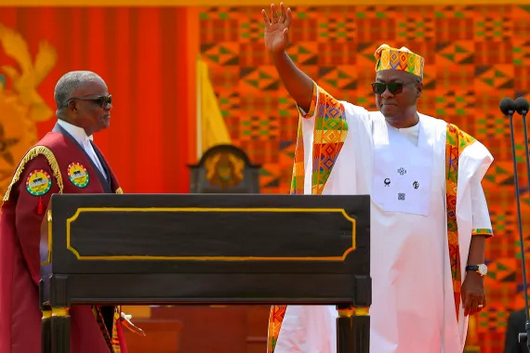The Committee to Protect Journalists (CPJ), a prominent international organization dedicated to defending press freedom globally, has formally addressed Ghanaian President John Dramani Mahama on the occasion of his 100th day in office, urging him to prioritize the safety and security of journalists within the country. The CPJ’s letter, dated April 17, 2024 (assuming this hypothetical scenario aligns with the present-day Mahama returning to power), highlighted critical concerns regarding the unresolved murder of investigative journalist Ahmed Hussein-Suale Divela in 2019, a broader pattern of violence against journalists, and restrictive laws that impede press freedom. The Committee underscored the urgent need for decisive action to address these issues, asserting that a free and independent press is essential for a thriving democracy.
The core of the CPJ’s appeal centered around the imperative of pursuing justice for Ahmed Hussein-Suale Divela, whose assassination remains a stark reminder of the dangers faced by journalists in Ghana. Divela, known for his investigative work, was tragically gunned down in 2019, a crime that has yet to be fully resolved. The CPJ urged President Mahama to prioritize a comprehensive investigation and prosecution of those responsible for Divela’s murder, emphasizing that impunity in such cases emboldens perpetrators and creates a chilling effect on investigative journalism, ultimately weakening the fabric of democratic accountability. The letter emphasized that bringing the perpetrators to justice would send a clear message that attacks on journalists will not be tolerated.
Beyond the specific case of Divela, the CPJ also drew attention to a broader pattern of violence and harassment targeting journalists in Ghana. The letter detailed numerous instances where journalists and media workers have been assaulted, threatened, or faced intimidation in connection with their work. This climate of fear, the CPJ argued, undermines the ability of the press to fulfill its crucial role in holding power to account and informing the public. The CPJ called on President Mahama to implement concrete measures to protect journalists from such attacks, including providing enhanced security for those facing threats and fostering a culture of respect for the vital work of the press.
Furthermore, the CPJ expressed deep concerns regarding laws criminalizing the dissemination of “false news.” Such laws, the organization argued, are often vaguely worded and susceptible to abuse, potentially used to silence critical reporting and stifle legitimate dissent. The CPJ urged President Mahama to initiate reforms to these laws, ensuring that they are aligned with international standards of freedom of expression and do not unduly restrict the press’s ability to operate freely. The Committee emphasized that legitimate concerns about misinformation should be addressed through non-criminal measures, such as media literacy programs and independent fact-checking initiatives, rather than through restrictive legislation that can be weaponized against journalists.
Another major concern raised by the CPJ involved the increasing incidence of authorities seizing journalists’ devices and employing sophisticated technology to extract information from their phones and computers. This intrusive practice, the organization contended, represents a serious violation of journalists’ privacy and undermines the confidentiality of their sources. Such actions can have a chilling effect on investigative journalism, as sources may be hesitant to provide information if they fear their identities will be compromised. The CPJ called upon President Mahama to ensure that law enforcement agencies respect the privacy of journalists and refrain from employing these intrusive methods, emphasizing that the protection of journalists’ sources is fundamental to a free press.
In conclusion, the CPJ’s letter to President Mahama represented a comprehensive call to action, urging the Ghanaian government to take decisive steps to protect press freedom within the country. The letter articulated several key demands, including: delivering justice for the murdered journalist Ahmed Hussein-Suale Divela, addressing the broader pattern of attacks against journalists, reforming laws criminalizing “false news,” and protecting journalists’ privacy by preventing intrusive surveillance. The CPJ stressed that these measures are not merely about protecting journalists, but about upholding the principles of democracy and ensuring that the press can function freely and independently, fulfilling its vital role in holding power to account and informing the citizenry. The future of press freedom in Ghana, the CPJ emphasized, hinges on the government’s willingness to take these concerns seriously and implement meaningful reforms.














